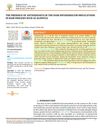1 citations,
December 2023 in “Biomolecules” Regulating cell death in hair follicles can help prevent hair loss and promote hair growth.
 1 citations,
January 2019 in “Journal of Dermatology and Dermatologic Surgery”
1 citations,
January 2019 in “Journal of Dermatology and Dermatologic Surgery” Stem cell therapy shows promise for hair loss treatment, but more research is needed to confirm its effectiveness.
 1 citations,
July 2018 in “Elsevier eBooks”
1 citations,
July 2018 in “Elsevier eBooks” Triple horizontal scalp biopsies are 98% accurate in diagnosing hair loss, better than single biopsies.
 1 citations,
April 2015 in “Current problems in dermatology”
1 citations,
April 2015 in “Current problems in dermatology” The document concludes that the trichogram is a useful tool for diagnosing hair loss and suggests semi-organ cultures for practical trichological research.
November 2024 in “Biochemical and Biophysical Research Communications” Abnormal gene expression related to keratin causes hair loss in certain mice.
 April 2024 in “Scientific reports (Nature Publishing Group)”
April 2024 in “Scientific reports (Nature Publishing Group)” Rosemary and neem extract may be an effective natural treatment for dandruff and hair loss.
 February 2024 in “Biomedical materials”
February 2024 in “Biomedical materials” Scientists created a lab-grown hair follicle model that behaves like real hair and could improve hair loss treatment research.
 November 2023 in “Hair transplant forum international”
November 2023 in “Hair transplant forum international” Caffeine can stimulate hair growth, but the best dose and frequency for hair loss treatment are still unknown.
 June 2022 in “International Journal of Research -GRANTHAALAYAH”
June 2022 in “International Journal of Research -GRANTHAALAYAH” Antioxidants like catalase are important for preventing hair loss conditions like alopecia.
 October 2021 in “Research Square (Research Square)”
October 2021 in “Research Square (Research Square)” Hair follicle stem cells in hairpoor mice are disrupted, causing hair loss.

Bovines can have rare inherited skin diseases with specific symptoms like hair loss, fragile skin, and abnormal porphyrin buildup.
 September 2017 in “Springer eBooks”
September 2017 in “Springer eBooks” Epinephrine does not significantly affect the severity of hair loss after surgery.
 January 1991 in “Journal of Pediatric Health Care”
January 1991 in “Journal of Pediatric Health Care” Hair loss in children can be caused by fungal infections, trauma, autoimmune disorders, or stress, and treatments vary depending on the cause.

Hair loss in African American women, caused by hair care, genetics, and environment, needs more research for better treatment.
 June 2018 in “Advances in Cosmetic Surgery”
June 2018 in “Advances in Cosmetic Surgery” Hair loss caused by genetics and hormones; more research needed for treatments.
 April 2017 in “Journal of Investigative Dermatology”
April 2017 in “Journal of Investigative Dermatology” Hair loss patterns differ between males and females due to 5 master regulators and JAK-STAT signaling affects hair growth.
 421 citations,
April 2012 in “The New England Journal of Medicine”
421 citations,
April 2012 in “The New England Journal of Medicine” Alopecia Areata is an autoimmune condition causing hair loss with no cure and treatments that often don't work well.
 329 citations,
January 1997 in “Journal of the American Academy of Dermatology”
329 citations,
January 1997 in “Journal of the American Academy of Dermatology” Frontal fibrosing alopecia is a hair loss condition in postmenopausal women, similar to lichen planopilaris, with ineffective treatments.
 305 citations,
February 2007 in “Hormone and metabolic research”
305 citations,
February 2007 in “Hormone and metabolic research” Human skin makes sexual hormones that affect hair growth, skin health, and healing; too much can cause acne and hair loss, while treatments can manage these conditions.
 224 citations,
March 2006 in “Seminars in Cutaneous Medicine and Surgery”
224 citations,
March 2006 in “Seminars in Cutaneous Medicine and Surgery” The document concludes that understanding hair follicle biology can lead to better hair loss treatments.
 223 citations,
January 2014 in “International Journal of Molecular Sciences”
223 citations,
January 2014 in “International Journal of Molecular Sciences” The conclusion is that proper signaling is crucial for hair growth and development, and errors can lead to cancer or hair loss.
 199 citations,
April 2010 in “Nature”
199 citations,
April 2010 in “Nature” A gene called APCDD1, which controls hair growth, is found to be faulty in a type of hair loss called hereditary hypotrichosis simplex.
 152 citations,
December 2007 in “Gender Medicine”
152 citations,
December 2007 in “Gender Medicine” Male and female skin differ due to hormones, affecting conditions like hair loss, acne, and skin cancer, and suggesting a need for gender-specific treatments.
 149 citations,
July 2014 in “Cold Spring Harbor Perspectives in Medicine”
149 citations,
July 2014 in “Cold Spring Harbor Perspectives in Medicine” The dermal papilla is crucial for hair growth and health, and understanding it could lead to new hair loss treatments.
 139 citations,
February 2014 in “Journal of Advanced Research”
139 citations,
February 2014 in “Journal of Advanced Research” Vitamin D is important for skin health and may affect conditions like psoriasis and hair loss, but more research is needed to understand its role fully.
 128 citations,
March 2006 in “American Journal of Pathology”
128 citations,
March 2006 in “American Journal of Pathology” Prolactin contributes to hair loss by promoting hair follicle shrinkage and cell death.
 126 citations,
January 2009 in “International Journal of Trichology”
126 citations,
January 2009 in “International Journal of Trichology” Oxidative stress contributes to hair graying and loss as we age.
 122 citations,
April 1995 in “Journal of Cutaneous Pathology”
122 citations,
April 1995 in “Journal of Cutaneous Pathology” The document describes how to tell different types of non-scarring hair loss apart by looking at hair and scalp tissue under a microscope.
 115 citations,
January 2014 in “Journal of Cutaneous and Aesthetic Surgery”
115 citations,
January 2014 in “Journal of Cutaneous and Aesthetic Surgery” Platelet-rich plasma (PRP) is a cheap and easy treatment for hair loss, but not suitable for everyone. It also helps in healing ulcers, rejuvenating skin, and improving hair transplants.
 100 citations,
April 2010 in “Expert Opinion on Pharmacotherapy”
100 citations,
April 2010 in “Expert Opinion on Pharmacotherapy” Hair loss in men treated best with early medication or transplant, new treatments researched.



























